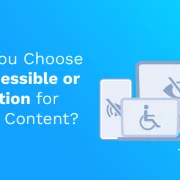Open source software is software whose codes are available publicly for use, development, and understanding of the software. Moodle is an excellent example of open-source software. It is widely used in e-learning universities to help students grasp the intricacies of software and coding.
Q: What is open source software?
A: Open source software is software that is publicly available and allows people to access and modify its source code.
Q: How is open source software different from proprietary software?
A: Open source software differs from proprietary software in that anybody can access and alter the source code, whereas proprietary software is controlled and owned by a single business or organization.
Q: What are the benefits?
A: Lower costs, more flexibility and customizability, increased security, and access to a sizable developer and user community for support and cooperation are all advantages of utilizing the same.
Q: What are the drawbacks of using open code software?
A: The negatives of utilizing open code software include possibility for lack of support, lack of user-friendly interfaces, and potential for compatibility issues with proprietary software.
Q: Can decentralized software be used for commercial purposes?
A: Certainly, as long as the conditions of the license agreement are followed and any changes made to the software are also made available as open source.
Q: What types of software applications are commonly available?
A: Commonly available open-code software applications include operating systems, web browsers, office productivity software, content management systems, and programming languages.
Q: How is decentralized software developed and maintained?
A: A community of developers that contribute to the code and work together on its development and improvement often create and maintain shared-source software.
Q: What types of license agreements are used?
A: Popular license agreements used for decentralized software include the General Public License (GPL), the Apache License, and the MIT License, among others.
Q: How can users contribute to open-code software development?
A: Users can contribute to decentralized software development by reporting bugs or issues, contributing to documentation, and providing code fixes or new features.
Q: What is the future?
A. Future trends for shared software are projected to include continuous development and growth, increased application in business and commercial settings, and a stronger emphasis on sustainability and security. Hurix Digital stays ahead of these trends by delivering innovative, scalable, and secure open-code solutions tailored to evolving industry needs.



